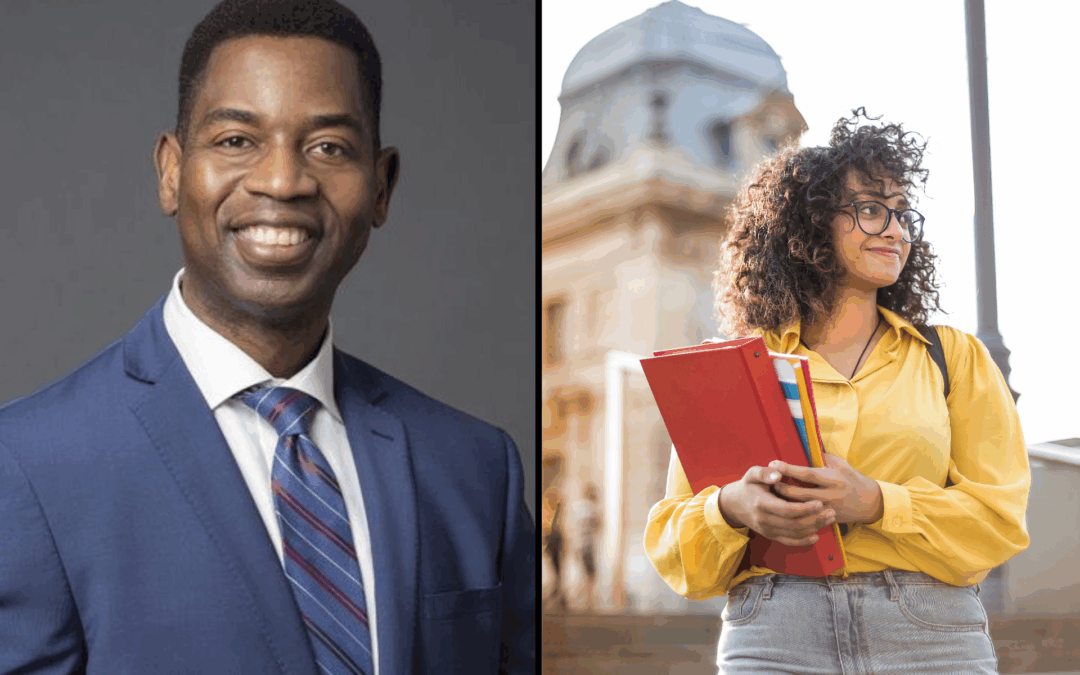By Gregory W. Fowler, PhD, with Susan Hawkins-Wilding and Matthew Belanger
At University of Maryland Global Campus (UMGC), we serve a population with extraordinary potential and complexity—adults in the workforce and the military, career changers, first- generation learners, and others who balance careers, families, and financial obligations while pursuing credentials and training that represent much more than academic achievement.
For these learners, persistence and completion are more than academic goals; they are life- changing outcomes that can lead to skill development, social mobility, and generational transformation. And for us, they are moral and strategic imperatives.
The challenge is clear. Nationally, persistence and completion rates at adult-serving institutions lag those at “traditional” institutions, but research and decades of experience show that these students struggle because they are navigating systems that were not built for them, not because they lack ability or motivation.
In response, UMGC has reimagined the student experience from the ground up. Every touchpoint, from first inquiry to graduation and beyond, is designed to remove barriers, foster connection, and support momentum.
The results are significant. Overall, course success rates are up almost 5 percent over three years, and recent data shows particularly strong gains among multiple underserved populations for both course success and reenrollment rates.
Coaching as Catalyst
Another signature initiative, our success coaching model, is driven by a simple but powerful insight: students need more than academic advising and enrollment support when they encounter a challenge and reach out. They need holistic support that develops a personal connection, builds a sense of belonging, and anticipates unique and individual needs.
I liken this to the Sherpa relationship, where a skilled guide walks every step of the journey with you. Our coaches are trained to help students navigate academic planning, career goals, time management, financial support services, and life challenges. They don’t just answer questions; they build relationships. They become familiar with each learner’s unique challenges and guide them on the path that is best for them. Learners who opt for this structured course sequence are some 5.7 percent more likely to complete a course successfully and almost 16 percent more likely to reenroll.
Implementation also taught valuable lessons, underscoring the importance of early engagement, and confirming that no single intervention will succeed in isolation. Piloted as part of our First-Year Experience redesign, the model showed early gains in engagement and persistence. Students reported feeling seen, heard, and supported—words that matter deeply in a largely online environment.
Today, coaching is integrated across the student lifecycle, with data-informed outreach and proactive nudges to keep learners on track.
More than “Ready to Help”
Coaching is one piece of a broader strategy designed to remove friction from the student journey. We continue to invest in low- and no-cost learning resources, replacing costly publisher textbooks with open-access materials and integrated digital content and passing the savings on to our learners.
We have expanded access to mental health services and other wellness resources tailored to adult learners and partnered with national organizations to address basic needs insecurity. For many, food, housing, and childcare are academic issues, too.
These efforts are not siloed. Our global learning ecosystem is now led by a Chief Learner Experience and Success Officer who oversees academic success, student affairs, digital engagement, and workforce readiness, aligning resources around student success. From onboarding to graduation and beyond, we ask, “What does the student need now? How can we deliver it with empathy, efficiency, and impact?”
A Culture of Completion
Given this lens, persistence is more than about students staying; it is about uniting as a team to help them finish. We have built a completion culture that celebrates milestones, tracks progress, and removes administrative hurdles. We have streamlined degree audits, defined pathways to completion, and created communities of support for students nearing the finish line.
Ours, however, is a race without a finish. Every day we learn from our students, iterate on our models, and invest in what works, recognizing continuous improvement as a responsibility, not a slogan.
The Path Forward
Looking ahead, we are fully committed to designing every aspect of the learner experience around the realities, aspirations, and expectations of those we serve. Persistence and completion are not endpoints; they are evidence that we have done our jobs well, ensuring learners get what they came for, including the support, guidance, and resources to transform their lives.
We invite our peers, partners, and policymakers to join us in this work. Together, we can build systems that honor the complexity of adult learners and deliver on the promise of opportunity.
Gregory W. Fowler, PhD, is president of University of Maryland Global Campus (UMGC). Susan Hawkins-Wilding is vice president, Student Success, and Matthew Belanger is vice president, Student Engagement and Achievement.


Recent Comments